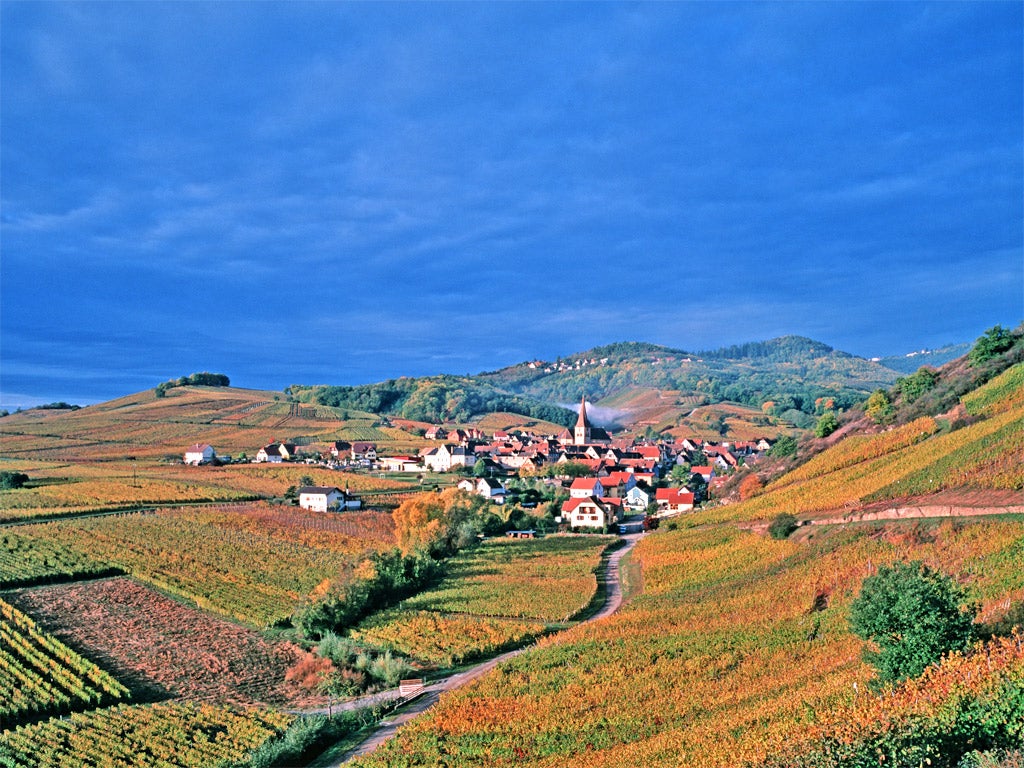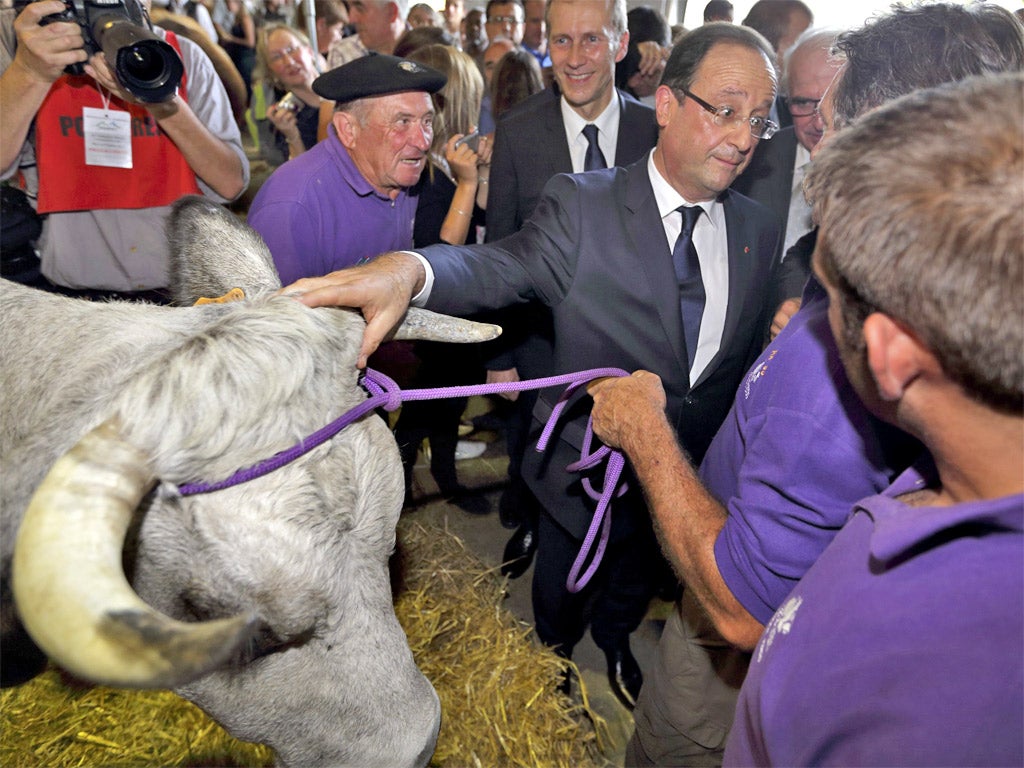Landscape of French farming set to change as President François Hollande channels subsidy to smaller producers

Your support helps us to tell the story
From reproductive rights to climate change to Big Tech, The Independent is on the ground when the story is developing. Whether it's investigating the financials of Elon Musk's pro-Trump PAC or producing our latest documentary, 'The A Word', which shines a light on the American women fighting for reproductive rights, we know how important it is to parse out the facts from the messaging.
At such a critical moment in US history, we need reporters on the ground. Your donation allows us to keep sending journalists to speak to both sides of the story.
The Independent is trusted by Americans across the entire political spectrum. And unlike many other quality news outlets, we choose not to lock Americans out of our reporting and analysis with paywalls. We believe quality journalism should be available to everyone, paid for by those who can afford it.
Your support makes all the difference.President François Hollande has reversed decades of French farm policy by channelling subsidies away from intensive, highly-mechanised producers towards smaller, more traditional farms.
In a judgment much-awaited in rural France, Mr Hollande took advantage of new rules in European Union agriculture policy to switch cash away from the vast cereal and dairy farms which have traditionally gobbled up the biggest share of EU subsidies. For most of the last half-century, France has justified European farm subsidies on the grounds that they protect family farms, rural employment and high-quality food production. At the same time, it has defended policies in Brussels which channel most European cash towards the largest, least environmentally-friendly and most mechanised farms.
Mr Hollande told a conference of cattle-producers in the Auvergne that this would now end. He would use the more flexible rules agreed for the Common Agriculture Policy (CAP) in July to divert EU cash away from big, rich cereals farmers and towards smaller beef, dairy, sheep, fruit and vegetable producers.
“Agriculture is a great asset for France but we must decide what kind of agriculture policy we want,” Mr Holland said. “France needs its small farmers and it needs its cattle and sheep producers. It needs an agriculture which generates employment and protects and enhances the environment.”
Under the existing farm policy, beef and sheep farms in the rolling acres of central and southern France are subsidised by Brussels by an average of €208 (£174) each hectare (roughly two and a half acres). Some farmers receive only €150 a hectare. The vast cereals and dairy farms of northern and eastern France receive, on average, €375 a hectare.
The figures represent the “historic” rights created in the early days of the CAP, when Brussels propped up dairy and cereals prices but neglected other types of farming. Successive French governments – with the brief exception of a Socialist government in the 1990s – have ferociously defended these imbalances. Subsidies to ranch-like wheat and barley farms have helped to make France one of the world’s great cereals exporters. There were 2.3 million farms in France in 1955, 663,000 in 2000 and less than 500,000 by the beginning of this year. Beef producers in the hilly areas of central France and small dairy farms have been suffering most.

Under the policies announced by Mr Hollande, the average amount of subsidies paid by hectare to all kinds of French farms will be brought closer into line. No farmer should receive less than 70 per cent of the national average per hectare by 2019, Mr Hollande said. The payments for the first 52 hectares will be front-loaded to give a bigger boost to smaller farms.
The change in policy, advocated by the Agriculture Minister Stéphane Le Foll, has been angrily resisted by the biggest French farmers’ union, the FNSEA, which is dominated by cereal producers. The FNSEA is ready to agree some shift in subsidies but has refused, in the name of “efficiency” and “modernity”, to accept the principal of front-leading payments to smaller farmers.
Join our commenting forum
Join thought-provoking conversations, follow other Independent readers and see their replies
Comments